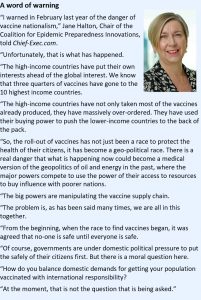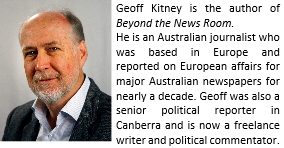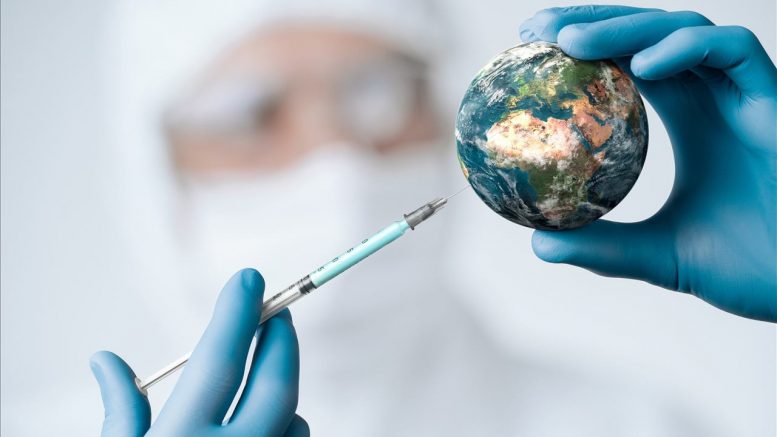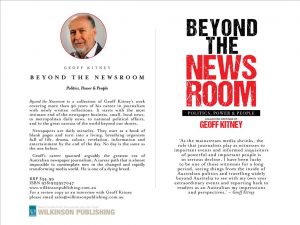The vaccine wars appear to be just skirmishes ahead of something much bigger – vaccines as weapons in a looming new Cold War, writes Geoff Kitney.
Very early on, long before the size of the Covid pandemic became apparent, informed people warned of the danger of vaccine wars breaking out down the track.
Leading health experts and strategic policy analysts warned that when, inevitably, vaccines were found to inoculate the world’s population, there was a real risk that decisions about the manufacture and distribution of vaccines would become more motivated by politics than health. Countries with the capability to manufacture vaccines – or with economic power to get early access to them – were likely to be tempted to put the interests of their own citizens ahead of the greater good of humanity overall. They called it “vaccine nationalism”.
A year after the early warnings, risk has become reality. Beggar-thy-neighbour decision making has been a dominant feature of the global vaccine roll-out.
While Covid has affected almost every one of the world’s 195 countries and a large proportion of the world’s 7.8 billion people, the roll-out of vaccines has been heavily biased towards the rich world.
Almost the entire planned production of the Pfizer BioNTech vaccine has been booked by rich countries.
The wealthiest 14 per cent of the world’s population has received more than 50 per cent of vaccines administered, according to the World Health Organization.
And the wealthiest countries have rushed to place orders for the lion’s share of vaccines yet to be produced – amounts far in excess of the needs of their own populations. Canada and the United Kingdom have placed vaccine orders for almost four times their own populations, Australia 2.5 times its population and the United States double its population. Almost the entire planned production of the Pfizer BioNTech vaccine has been booked by rich countries.
Even where it is clear that orders will exceed demand, rich countries are refusing to commit to sharing excess product. The UK and the US have not yet delivered a single dose of their promised contributions to the COVAX scheme for ensuring the equitable distribution of vaccines to poorer countries. The European Union is allowing a proportion of its orders to go to poor nations – but has moved to introduce export controls to prevent vaccines manufactured in the EU to leave its shores after falling well behind the UK and the US in rates of vaccinations of their own citizens.
This is despite most developed countries committing at the outset of the pandemic to resist “vaccine nationalism” and, in most cases, signing up to the World Health Organization’s COVAX fund which was created to ensure an equitable distribution of vaccines between the richest and poorest of nations.
As things now stand, the richest nations will have fully vaccinated all their citizens by the end of this year while the poorest of nations are unlikely to see their populations vaccinated by 2024 – and maybe much later.
Jane Halton, chair of the Coalition for Epidemic Preparedness Innovations – established before Covid emerged to help build the global architecture for dealing with future epidemics – told Chief-Exec.com that the original good intentions of rich nations to ensure the sharing of vaccines as they became available had failed to materialise as governments caved to political pressure to give priority to ensuring the protection of their own citizens.

The multi-nation, UN-backed COVAX vaccine buying agency, which was established to compete in the market place to secure vaccine supplies sufficient to ensure equitable distribution of vaccines to the whole world, has been outmuscled by the richest countries in the race to secure vaccine supplies.
But there is more to this than national selfishness.
The vaccine wars now under way appear to be just skirmishes ahead of something much bigger – vaccines as weapons in the looming new Cold War. Some experts believe vaccines will become as much a tool of geo-political competition and conflict as oil and energy did in the 20th century.
The signs of this emerged early.
With the United States focused on vaccinating its own population, first China and then Russia raced to beat western powers – especially the US – to produce vaccines and to start using them, not only for their own citizens but for others countries with whom they sought to gain influence.
Just as it did in the early stages of the pandemic with the distribution of Chinese-made masks and personal protective equipment (PPE), China has moved quickly to offer Chinese made Covid-19 vaccines to a wide range of countries. Recent Chinese Foreign Ministry figures revealed that China was providing free vaccines to 69 countries and exporting, under sales contracts, to 28 others.
China bristles at allegations that it is using its vaccines to buy influence despite officials linking the offer of vaccines to countries which have signed up to its huge Belt and Road global infrastructure programme. Western intelligence agencies also say they have evidence that, in some instances, China is linking vaccine offers to the willingness of receiving countries to sign up to buying China’s Huawei 5G technology.
Russia, meanwhile, has already exported batches of its Sputnik V vaccine to 39 countries with the clear aim of securing diplomatic credit ahead of any competition from the US.
Russia, when it announced in October that the Sputnik V vaccine had proven safe and would soon be rolled out, openly boasted that it had won the vaccine race and pilloried the US for its poor management of the impact of the pandemic.
While the new US President, Joe Biden, has focused the US vaccine roll-out on delivering his election pledges to vaccinate Americans first, analysis shows that US vaccine production is likely to result in a large surplus of vaccine supplies relatively soon.
Analysts say that the US is gearing up to begin competing with China and Russia on a huge scale once it has achieved its domestic goals and has a vaccine over-supply. It sees China’s vaccine diplomacy as especially threatening to its interests.
A clear sign that the US is shifting towards using vaccines as a tool to advance its own sphere of global influence is the recent US-initiated push to get key allies to join its global vaccine strategy.
In an online hook-up with the leaders of Japan, India and Australia (a grouping of US allies known The Quad) President Biden agreed that the four would work together to provide 1 billion doses of the US manufactured Johnson & Johnson vaccine to countries in southeast asia to counter Chinese vaccine diplomacy. A senior US official described this agreement as “a big day for American diplomacy”.
Significantly, the same four US allies have balked at attempts by nearly 100 countries at the World Trade Organization to break patent restrictions on the development and supply of Covid-19 vaccines.
The original good intentions of rich nations to ensure the sharing of vaccines as they became available had failed to materialise as governments caved to political pressure to give priority to ensuring the protection of their own citizens.
With very few countries – other than the major powers having the capability to design and manufacture vaccines – the push to allow them to acquire these abilities using already developed technology is based on the view that this is the most equitable and rapid means of ensuring people are protected from the Coronavirus no matter where they live.
The proposal is strongly opposed by the US Big Pharma companies which have invested huge sums in their Covid vaccines. The western powers backing them have been accused of being in the pockets of Big Pharma. But it seems that the prime consideration for opposing the WTO initiative is to ensure that the US and its western backers retain control over their own vaccine production and with it the ability to use the provision of vaccines to less well-off nations as a tool for global influence.
Imagine #SARS_CoV_2 as a single organism that is infecting the world. Our chart below shows that the conditions are forming for this organism again to grow in size as another global wave approaches. Nobody will be free from the coronavirus until everybody is free. pic.twitter.com/KPPhJYRhfU
— CovidAnalytics (@AnalyticsCovid) April 11, 2021
Health policy analysts and key figures working to ensure that there is a co-ordinated international response to the pandemic are deeply concerned about the emerging geo-political forces affecting the response.
They argue that nothing has changed since the scale and threat of the Covid pandemic first emerged and it became clear that only a concerted, co-ordinated and globally focused response would ensure that ultimate goal of ensuring all people were safe was achieved.
With the ever-growing threat of new and possibly more dangerous variants emerging, the longer the pandemic is allowed to run the harder it will become to control.
There are growing warnings that geo-politically motivated actions by governments with control over vaccine supply and distribution will pose a threat to the whole world. As one analyst, who asked not to be named, told Chief-Exec.com: “I am gravely concerned that this could all end very badly”.
Headline image credit: rangizzz/Shutterstock.com






